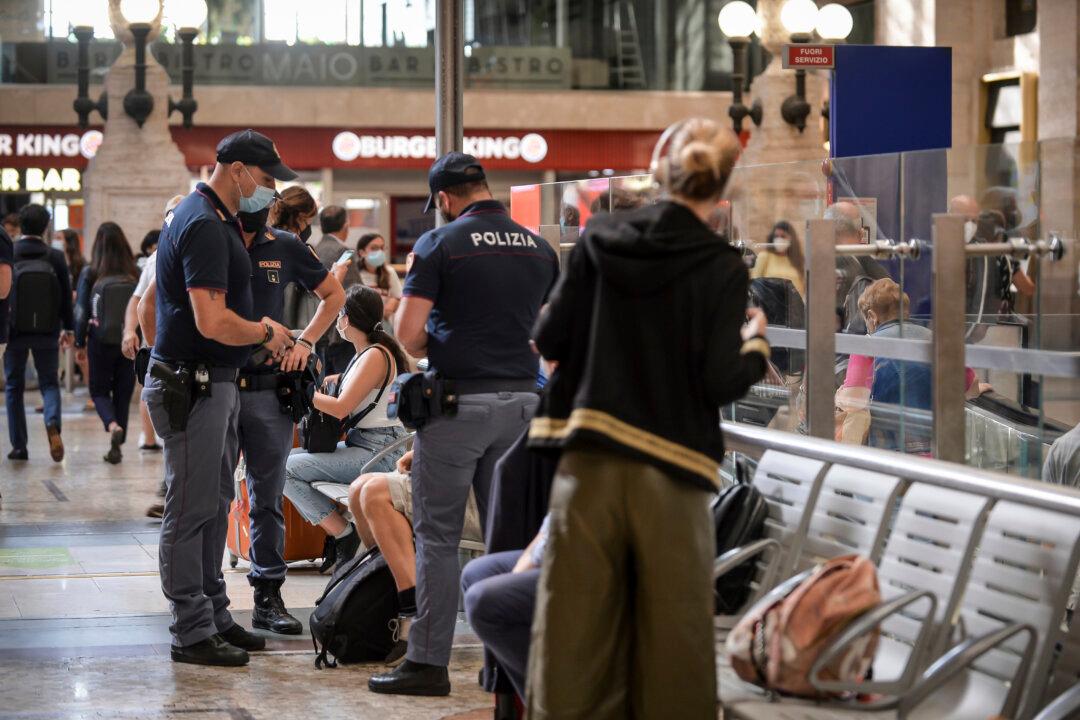ROME—Italy’s government vowed to crack down on demonstrators threatening to block train tracks throughout the country Wednesday as a rule requiring COVID-19 tests or vaccines to use public transportation for long-distance domestic travel took effect.
In a bid to rein in the transmission of infections as Italians returned from summer vacations, the government announced weeks ago that passengers must show a so-called “Green Pass” to board domestic flights, trains, and buses traveling between regions.





